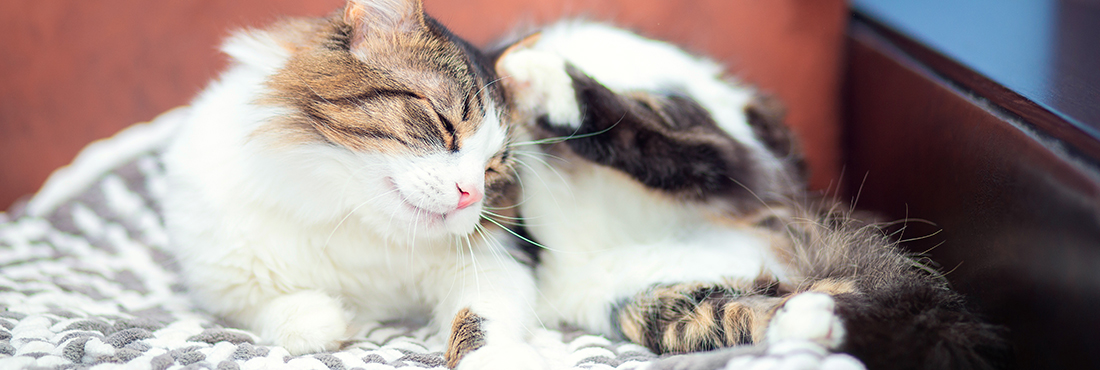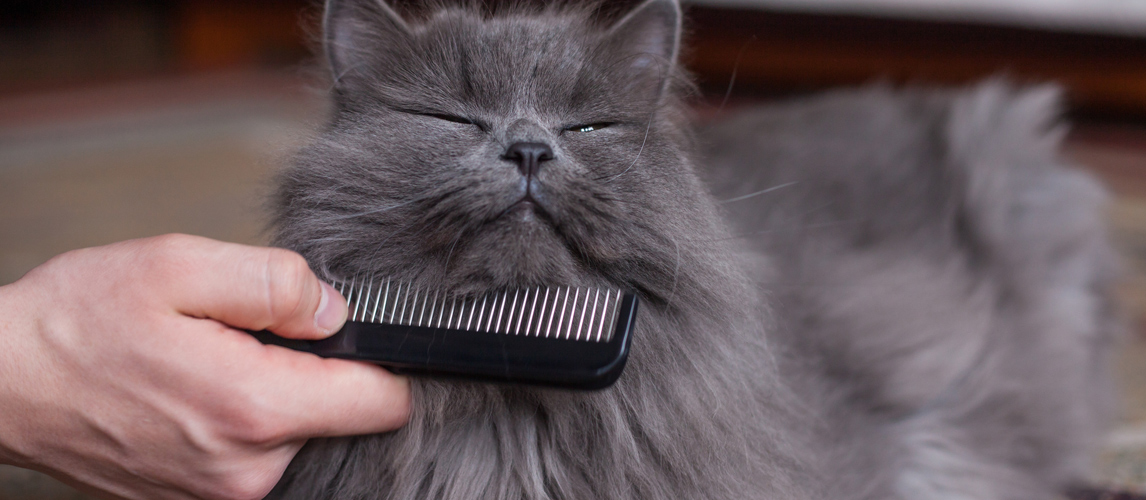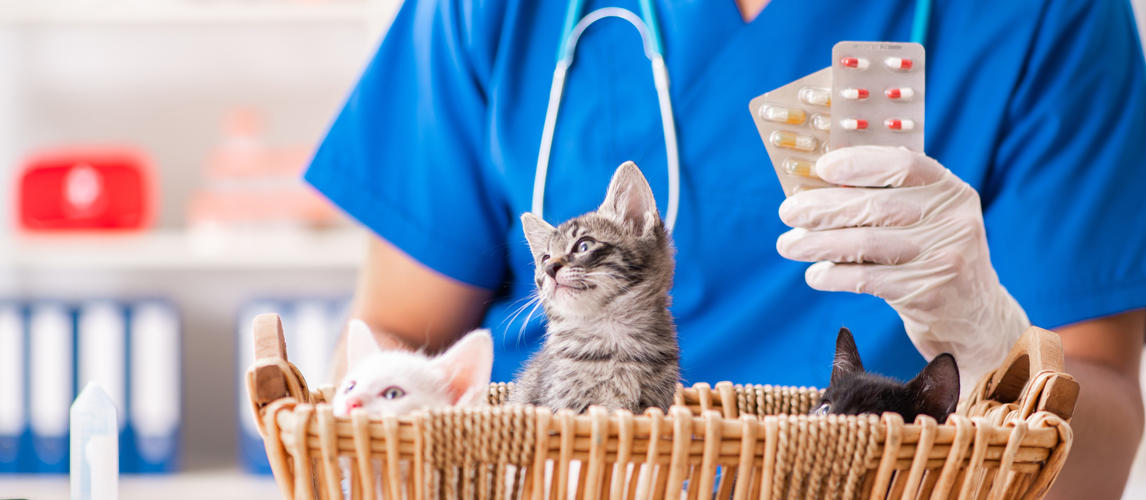Much like people, cats can also develop allergies at any stage in life with symptoms very similar to our own. Moreover, it’s surprisingly common for cats to suffer from allergies and is considered a typical medical condition with varying severities.
As a pet parent, it’s important to understand what causes allergies in cats and how to respond when they appear to be having an allergic reaction. Below you can find everything you need to know surrounding cat allergies.
What are Allergies in Cats?
An allergic reaction materializes when the body’s immune system is hypersensitive to unfamiliar substances called allergens. Essentially, the immune system overreacts and attempts to remove the unknown proteins which create the symptoms associated with an allergy.
Cat Allergy Symptoms
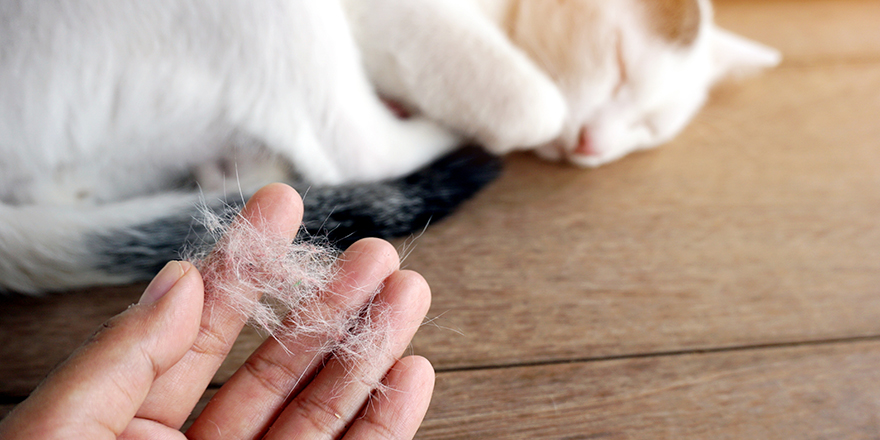
Cats with allergies respond in differing ways depending on the severity of the immune response. However, make sure to watch out for the following symptoms, no matter how mild they may seem as, at times, these can be exacerbated if not treated appropriately.
Cat Allergic Reaction – Common Allergy Symptoms:
- Runny nose
- Itchy and/or runny eyes
- Vomiting and/or diarrhea
- Snoring (due to respiratory issues – Although this is rare, it can still occur)
- Other problems with breathing including coughing, sneezing, and wheezing
- Sensitive paws
- Swollen paws
- Dry, red, and/or sensitive skin
- Ear infections
- Hair loss
Behavioral Changes:
- Excessive grooming
- Frequent scratching or gnawing of the skin (leading to bald spots, hair loss, and even skin abrasions)
- Neediness
- Lethargy
Cats with mild symptoms commonly develop skin irritations that can either be localized to one area of the body or can spread all over. This reaction is commonly associated with, but is not limited to, flea bites and is the symptom that can cause cats to groom excessively leading to hair loss and further skin abrasions.
Respiratory symptoms are uncommon but not impossible so it’s exceedingly important to see your veterinarian if you observe your kitty coughing, sneezing, or wheezing frequently. Similarly, digestive distress is also uncommon but can be troubling and lead to further problems if left untreated.
What are Cats Allergic to?
Overall, there are considered to be four common allergies for felines to develop. These are listed below followed by examples of what can provoke feline allergies.
Flea Allergies
A flea allergy is one of the prime reasons you should keep your cat’s treatments up to date and is perhaps the most common allergy in cats. Some cats only experience a mild irritation when bitten by a flea whereas a cat with flea allergies can suffer immensely.
Writer’s Note: From my own experience, seeing my cat suffer from a flea allergy was extremely distressing so I would urge anyone to seek veterinary care immediately if you notice your cat excessively grooming, gnawing, or scratching. Your cat can suffer immensely as a result of a flea bite allergy and it will not hesitate to tear out fur and even severely damage its own skin.
Flea bites cause an allergic reaction due to the antigens or proteins within the fleas’ saliva. The saliva is introduced into the cat’s system when the flea bites and pierces the skin. A single bite can have dire consequences as it will cause extreme itching. As a result, your cat can lose fur and damage the skin severely in an attempt to stop the irritation. If the problem is not resolved, scabs and sores will open up across the skin which can invite bacterial skin infections.
Additional Note: Although rare, cats can also be allergic to flea medication as well as vaccinations and shampoos.
Food Allergies
Cats can also develop a food allergy that is caused by the presence of a particular protein ingredient. Although limited research has been conducted regarding food allergies in cats, the most common causes are ingredients such as chicken, fish, turkey, beef, and pork. Some vegetable proteins can also be a cause as well as artificial preservatives and flavors. In addition to this, cats can also be allergic to duck, lamb, and rabbit but this is exceptionally rare.
Food-related allergies can cause cats to suffer from itchy skin, respiratory issues, and digestive distress.
Inhalant Allergies
First of all, environmental allergies, or atopic dermatitis, in cats can occur when your feline is exposed to both outdoor and indoor factors. For example, although little is understood, cats can be allergic to pollen and grasses. In addition to this, they can also be sensitive to mold, dirt, and dust.
Similarly, your cat’s body can also respond negatively to aerosols such as perfume, deodorants, air fresheners, cigarette smoke as well as cleaning products. It’s also crucial to know that if a cat has inhalant allergies it can be sensitive to a number of other allergens.
Whereas some of these threats are seasonal allergies, others such as mold, dust, and aerosols are present all year round. If your cat suffers allergic reactions to any of these, they will typically struggle with severe itching as opposed to respiratory problems associated with hay fever in humans.
Contact Allergies
This refers to a reaction as a result of contact between skin and materials or substances. Believe it or not, cats can be allergic to specific materials that make up bedding or accessories such as collars. Furthermore, they can also react badly to shampoos or other substances made to care for your cat’s coat and skin.
The typical telltale sign of contact allergies are primarily itching and skin irritation but identifying this particular feline allergy can be tough. Although, when you’ve successfully pointed out the cause you can simply remove the item causing the trouble and your cat’s symptoms should clear up in no time.
Cat Allergy Treatment
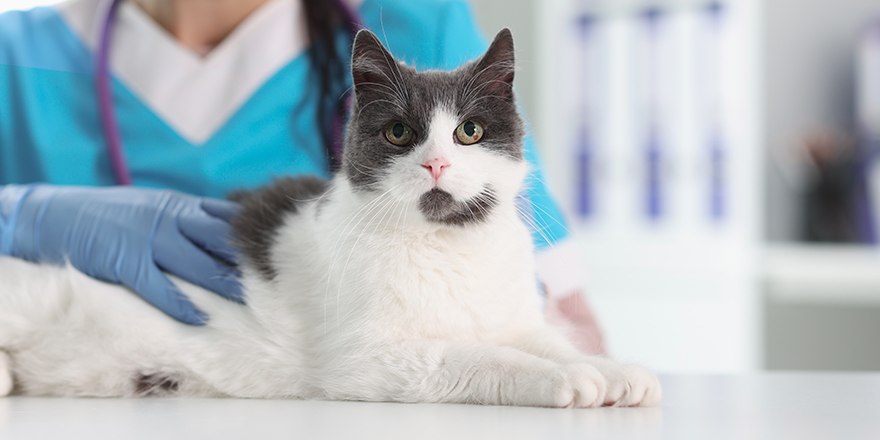
When you’ve learned that your cat has allergies the first and foremost thing to do is to visit your veterinarian. Some cat allergies are more difficult to diagnose than others, for example, a food allergy will require pet parents to enroll their feline in food exclusion trials for weeks on end. From this, they will then endure a food challenge which can also take time.
Allergy Diagnoses
A veterinary dermatologist may take some time to find the cause of an allergy but it won’t be impossible. Depending on the severity of the allergy and your cat’s medical records, a vet will conduct a physical exam potentially followed by blood tests or skin scrapings in order to narrow down the root of the problem.
Allergy Treatments
Essentially, the best course of action is to remove allergens from your cat’s environment. Also, upon seeing your cat, your vet will be able to apply the appropriate treatment depending on the cause of the allergy. Below is a list of tips on removing allergens from your home followed by actions your vet may take.
Tips to Removing Certain Allergens:
- Switch to a dust-free cat litter.
- Use a vet-recommended pest treatment to prevent fleas
- Refrain from smoking around your cat
- Wash your cat’s toys and bedding regularly
- Ask your vet if they recommend dietary supplements for extra nutrients
- Regularly clean your home of dust
- Opt for cleaning products that don’t heavily rely on strong-scented ingredients and chemicals
- Switch to a healthy diet/cat food. Hypoallergenic diets may be the best option for those with food allergies and severe gastrointestinal symptoms.
For some, a vet may recommend bathing your kitty regularly as this can protect them from potential allergens. Following their advice, you may want to use a recommended medical cat shampoo to treat inflamed skin.
Treating Food Allergies in Cats
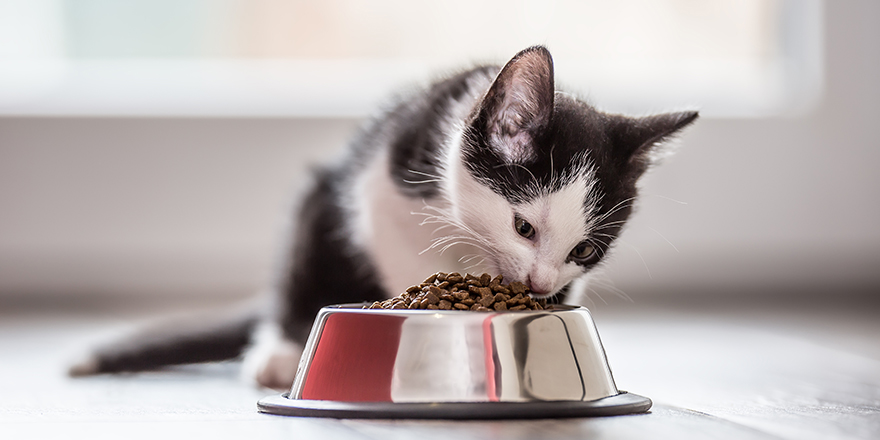
As mentioned above, if your vet suspects a food allergy, they will offer an appropriate diet that will initially cut out the potentially harmful ingredients such as animal protein or other food additives. This elimination diet trials take time, as the process is essentially trial and error. For more information, visit this link here where we have researched and detailed everything regarding cat food allergies. Here, we go into detail regarding how food allergies in cats are treated.
Allergy Medicine for Cats
In some instances, your vet may also prescribe medications to protect your kitty from irritating substances. These can include ointments, lotions, shampoos, ear drops, as well as eye drops. Furthermore, besides standard flea treatments, they can also prescribe cats antihistamines and cortisone pills.
Allergies in Cats When They Have Asthma
Studies state that cat allergies are more likely to develop if they have asthma. If your cat has both, it’s incredibly important to speak to your vet as they will be able to prescribe medications that will assist your cat’s airway. Some of these solutions can be temporary but there are alternatives that will treat your cat long term.

